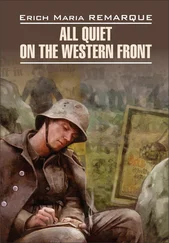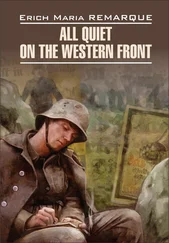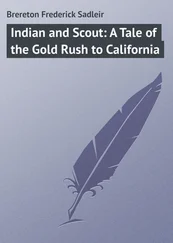Frederick Brereton - With Joffre at Verdun - A Story of the Western Front
Здесь есть возможность читать онлайн «Frederick Brereton - With Joffre at Verdun - A Story of the Western Front» — ознакомительный отрывок электронной книги совершенно бесплатно, а после прочтения отрывка купить полную версию. В некоторых случаях можно слушать аудио, скачать через торрент в формате fb2 и присутствует краткое содержание. Жанр: foreign_prose, на английском языке. Описание произведения, (предисловие) а так же отзывы посетителей доступны на портале библиотеки ЛибКат.
- Название:With Joffre at Verdun: A Story of the Western Front
- Автор:
- Жанр:
- Год:неизвестен
- ISBN:нет данных
- Рейтинг книги:3 / 5. Голосов: 1
-
Избранное:Добавить в избранное
- Отзывы:
-
Ваша оценка:
- 60
- 1
- 2
- 3
- 4
- 5
With Joffre at Verdun: A Story of the Western Front: краткое содержание, описание и аннотация
Предлагаем к чтению аннотацию, описание, краткое содержание или предисловие (зависит от того, что написал сам автор книги «With Joffre at Verdun: A Story of the Western Front»). Если вы не нашли необходимую информацию о книге — напишите в комментариях, мы постараемся отыскать её.
With Joffre at Verdun: A Story of the Western Front — читать онлайн ознакомительный отрывок
Ниже представлен текст книги, разбитый по страницам. Система сохранения места последней прочитанной страницы, позволяет с удобством читать онлайн бесплатно книгу «With Joffre at Verdun: A Story of the Western Front», без необходимости каждый раз заново искать на чём Вы остановились. Поставьте закладку, и сможете в любой момент перейти на страницу, на которой закончили чтение.
Интервал:
Закладка:
Brereton Frederick Sadleir
With Joffre at Verdun: A Story of the Western Front
CHAPTER I
The Camp at Ruhleben
You'd have said, if you had glanced casually at Henri de Farquissaire, that he was British – British from the well-trimmed head of hair beneath his light-grey Homberg hat to the most elegant socks and tan shoes which adorned his feet. His walk was British, his stride the active, elastic, athletic stride of one of our young fellows; and the poise of his head, the erectness of his lithe figure, a symbol of what one is accustomed to in Britons wherever they are met. That one gathered from a mere casual glance; though a second glance – a more penetrating one, we will say, one with a trifle more curiosity thrown into it – would have discovered other points still bearing out the same assumption as to Henri's nationality, and leaving hardly a suspicion that in point of fact he was French – as French as they make them.
For, putting aside the fact that this young gentleman was dressed in clothes unmistakably British, tailored, in fact, in the heart of fashionable London, his features, as well as his figure and his method of progress, pointed to a British origin. Not, let us add, that there is need to make comparisons between the appearance of young men of France and those of our country, nor need to exploit the one against the other. That there are essential differences between the two nationalities all will admit – differences accentuated, no doubt, in the great majority of cases by dress, by manner, and by environment.
But Henri – what nationality could he have belonged to other than British – with those rosy cheeks, that fresh complexion, and that little perky moustache which adorned his upper lip? His "How do you do?" in the purest English as he met a companion in the street was as devoid of accent as would have been that of a habitué of London. There was nothing exaggerated about his method of raising his hat to a lady whom he passed, no gesticulations, no active nervous movements of his hands, and none of that shrugging of the shoulders which, public opinion has it, is so eminently characteristic of our Gallic neighbours. And yet the young man was French.
Striding down one of Berlin's main streets in that summer of 1914, now so historic, he was chatting amiably with his chum, Jules Epain, a resident, like himself, of Berlin.
"So it's war, eh?" he asked his chum in French.
"War?"
There was silence for a little while, and then from Jules: "And we are here, in Berlin, the Kaiser's city!"
"Just so!" from Henri; "and, Jules, my boy, the sooner we take steps to move along the better. I have taken tickets for England already, and don't forget we are English."
There again, without a doubt, the appearance of Henri's friend would assist the suggestion which he had just mentioned. English? Yes, if Henri looked a British subject, and indeed spoke and behaved essentially as one of our people, then Jules, too, was not behind him. Perhaps more elegant, of darker features, spruce, neat, and well-groomed like his chum, he too had the distinguished air, that quiet and unassuming demeanour which stamp the Englishman throughout the world.
"You've the tickets, eh?" he asked Henri as they strode along. "For England too?"
"For England. And a tremendous job it was to get them. You see, Germany has declared war on France and Russia, and to attempt to return to France would have been out of the question. It had to be England, or Holland, or some such place, and England's quite good enough for me if I can get there."
"Bah!" Someone exploded near them; a huge, stout, helmeted individual gave vent to an exclamation of disgust, anger, hatred. The man spluttered as he suddenly pounced upon the two and ordered them to halt abruptly.
"So, French canaille!"
This huge Berlin constable positively foamed as he looked down upon the two young fellows, positively gnashed his teeth as he clenched his fists and regarded them angrily. In his super-arrogance this huge bully towered over the couple, and treated them to a stare, a derisive, angry, contemptuous inspection, which humbled them exceedingly. Indeed, Henri and Jules might have been simply noxious animals, mere beetles to be trodden underfoot, so contemptuous was this bullying constable of them.
"Bah! So, French at large, and not yet imprisoned! You are arrested."
"But arrested? But we're not soldiers," Henri told him in the best of German; "and in any case you will allow us to go to our lodging and get our baggage?"
Allow them to go to their lodgings! Permit any sort of privilege! Did any German since the commencement of this war allow any sort of a kindly sentiment to guide his actions when dealing with so-called enemies? The constable exploded, and, opening his heavily moustached mouth, roared an order at them.
"You will come with me at once! Hi, you! My Fritz! You will assist me, lest these men make an attack upon my person."
He called to his help a constable even bigger than himself, stouter by far, a man who looked as though he had lived on the fat of the earth, and had derived intense enjoyment from it. One would have imagined from his proportions, from the beefiness of his face, from his girth, that this second individual might have proved – as is the case with so many men of size – of a genial and gentle disposition. Yet Henri and Jules knew well enough that no such thing was to be expected; indeed, to speak only the truth, the people of Berlin knew this Fritz as a sardonic, brutal, overbearing individual. He bore down upon the trio like a huge, overgrown bull, and, making no bones of the matter, seized Henri in a grip from which there was no escaping.
"Get on with you to the station. A spy, eh?" he asked the cheerful constable who had called for his assistance.
"Who knows?" the man grunted. "But it's more than likely, for all Frenchmen in these parts are spies. Drag him along, while I see to this other whipper-snapper."
They were followed by a growing crowd of citizens of Berlin, a curious crowd which ran beside the two mountains of the law, so as to get a clear view of the prisoners, a crowd composed of elderly, white-bearded gentlemen, of middle-aged ladies of almost aristocratic appearance, and of youths and young girls, and gutter urchins – people who, you would have thought, once they had obtained a view of the captives and ascertained the reason for their arrest, would have been satisfied to leave the matter and to go on their way forgetting the subject. Perhaps in other days that crowd might have so behaved itself, and might have vanished long before the constables and their captives had reached the station; but crowds in the city of Berlin of other days, and the mob as it was in the latter part of July and the early days of August of 1914, were essentially and unmistakably different. War had been declared by the Fatherland, that war expected by the nation, eagerly awaited by all Teutons, longed for, oh how much and how eagerly, by all the subjects of the Kaiser! And now that it had come, now that the Emperor had thrown down the gauntlet before France and Russia, you would have imagined that the people of Berlin would have been overjoyed, would have been delighted, too happy and too contented to be angry. And yet, it so happened that there was disappointment, anger, rage, in the hearts of almost all these Germans. True, they had obtained, after all those years of training, a declaration for which they had so eagerly waited. France was in their power, conquered already, they told themselves, for was she not utterly unprepared for war? And as for Russia, Russia the Colossus, the steam-roller, inefficiency reigned in her ranks, and she, too, in her turn, would be most unquestionably conquered.
Then what, what had occurred to make this Berlin crowd – the swarm of people who hurried along the streets elsewhere, the mobs which gathered in front of embassies – so violent, so intensely hostile to France, so suspicious of the presence of spies, so furiously disappointed and angry?
Читать дальшеИнтервал:
Закладка:
Похожие книги на «With Joffre at Verdun: A Story of the Western Front»
Представляем Вашему вниманию похожие книги на «With Joffre at Verdun: A Story of the Western Front» списком для выбора. Мы отобрали схожую по названию и смыслу литературу в надежде предоставить читателям больше вариантов отыскать новые, интересные, ещё непрочитанные произведения.
Обсуждение, отзывы о книге «With Joffre at Verdun: A Story of the Western Front» и просто собственные мнения читателей. Оставьте ваши комментарии, напишите, что Вы думаете о произведении, его смысле или главных героях. Укажите что конкретно понравилось, а что нет, и почему Вы так считаете.












